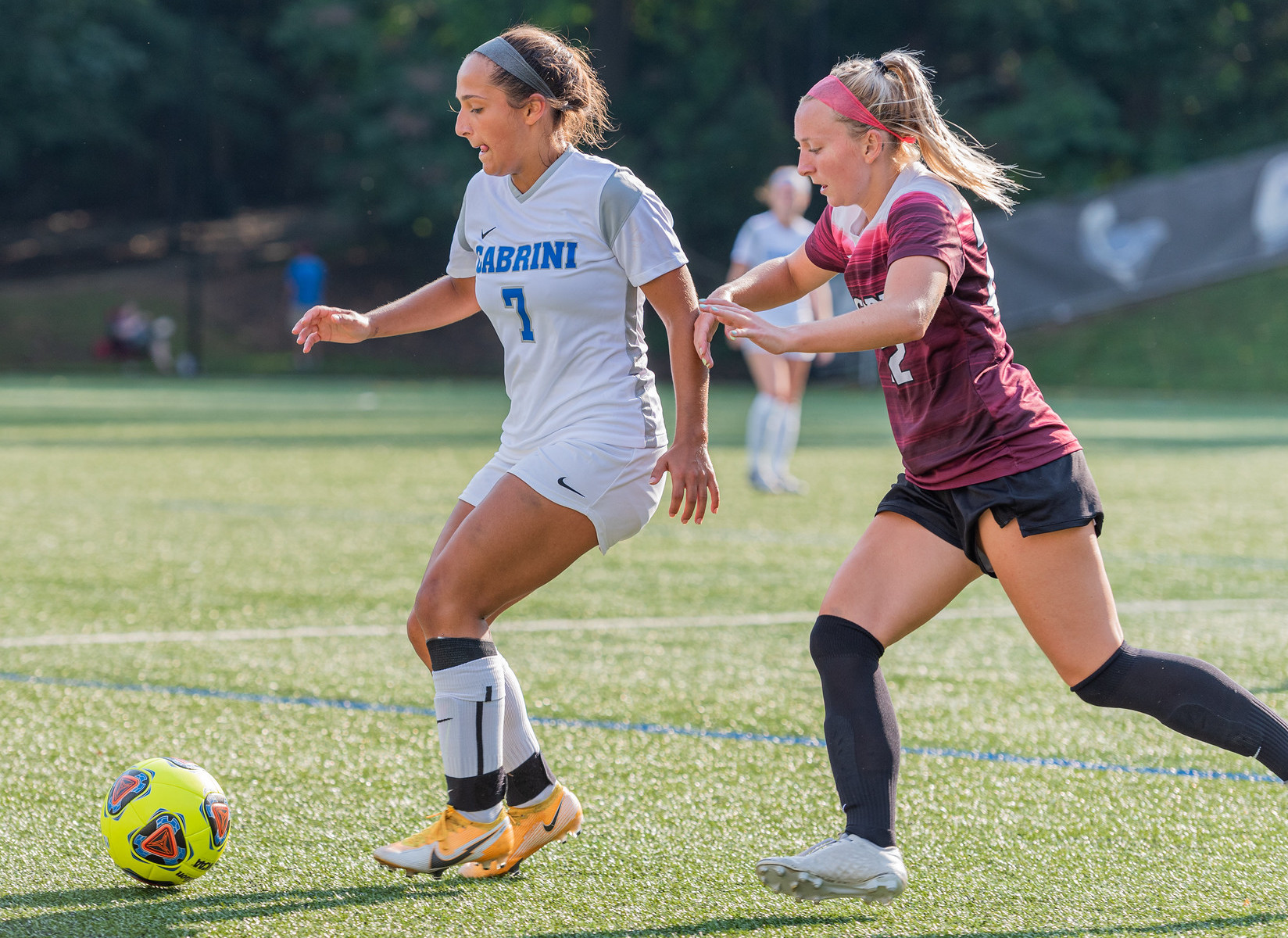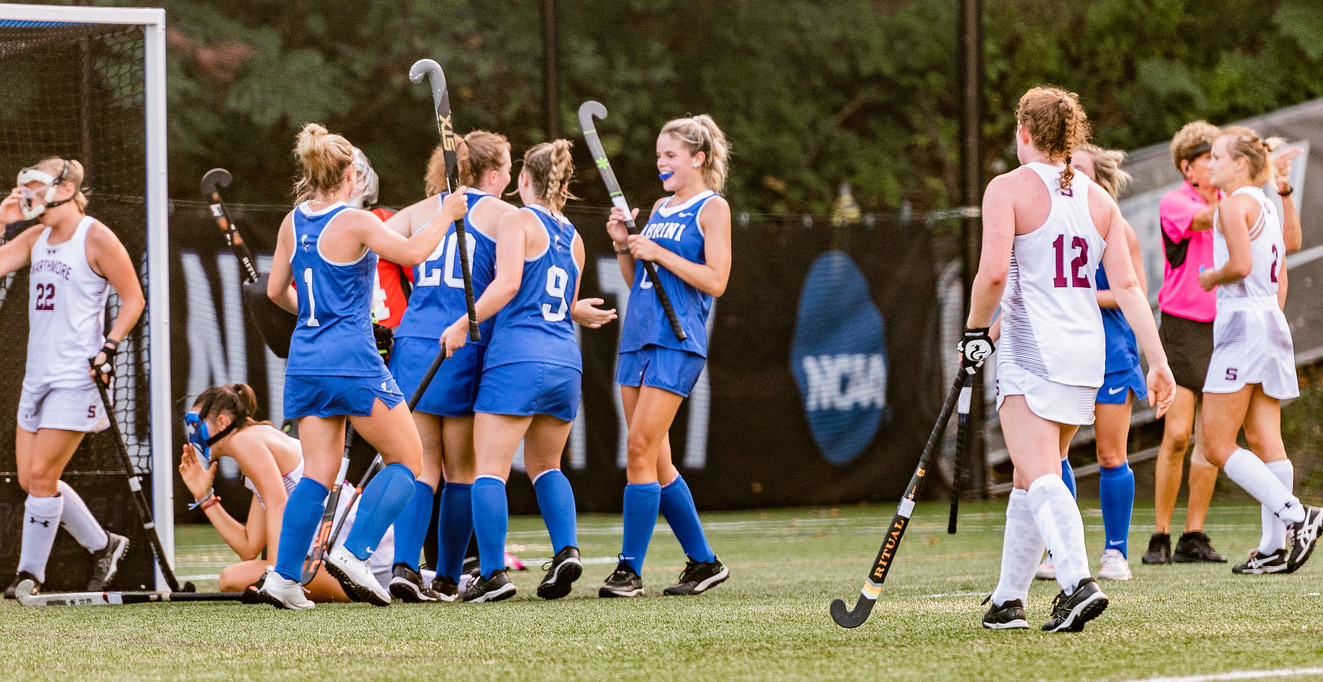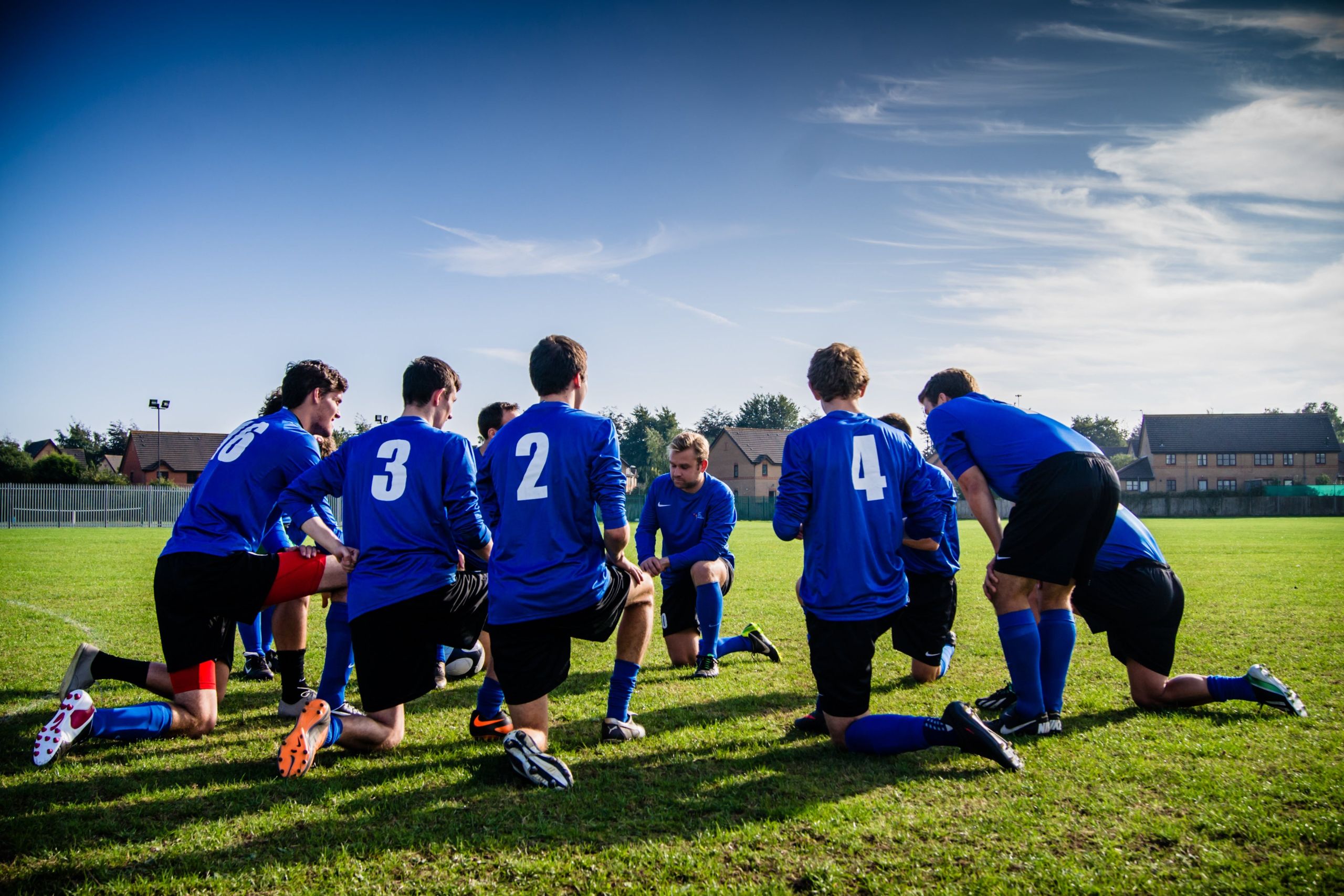Triumph on the field and in the mind. Psychological obstacles hurdled. Mental health takes the win while anxiety takes the loss. It’s time to learn the values of therapy in the student athlete community.
Shining a light on the topic is Hillary Graham, licensed professional counselor. As part of the Counseling and Psychological Services (CaPS), she talks about the rise of therapy in Cabrini’s student athlete community, and the common mental health issues surrounding student athletes’ competition-induced-stress. She talks about symptoms that indicate one should seek help and resources available at Cabrini.
A bright future for the community
Graham said there is a stigma around therapy in athletic culture. “It’s the belief that mental health, or seeking mental help, is a sign of weakness, rather than the hallmark of a winner.”
She said there is no stigma to seeking help at Cabrini, and in general, therapy has been on the rise and is becoming more accepted.
Graham noted that CaPS and Cabrini’s athletic programs have been working together since last year. Coaches and athletic staff were advised to talk about the importance of mental health and on-campus services available to help. She conducted mindfulness activities with the women’s basketball team and also took the opportunity to hold one-on-one conversations with some student athletes. “It was a wonderful partnership,” said Graham.
Since the relationship between CaPS and athletics began, there has been an increase of student athletes using on-campus therapeutic services.
Sports and stress
Graham said that with sports there is “perfectionism,” the intention that an athlete is at their best at all times, an ideology that can be disruptive to an individual’s mental health. “I’m only as good as the last time I was on the field,” said Graham. She used this as an example as to why a student athlete might feel an immense amount of anxiety.

Graham said, “When you put people under pressure, something else takes the hit.” Body dysmorphia, eating disorders, anxiety disorders, mood disorders, and personality disorders, are side effects a student athlete may encounter when dealing with stress. She said this can negatively impact one’s social confidence and emotional stability.
Natalie Bell, a business student who played tennis all four years, said the toughest part about being a student athlete was balancing business studies with the “pressure” from her sport, especially in her senior year because she wanted to finish out strong and focus on internships. She said she could only imagine what it’s like for students in the current semester of Cabrini, considering its closure.
Juggling sports and education at the same time is a common issue amongst student athletes, so it’s important that they leave time out for themselves. Graham believes a great way for student athletes to counter stress is “time management.”
“I find most people don’t have scheduled time just to relax,” Graham said. “People need to take a time out of their day dedicated to bringing them joy, not ‘passive joy,’ do something truly meaningful, something beneficial to your well-being.” She added, “Whether you’re a student athlete, or anybody in this world, we’re all moving too fast.”
Symptoms you should look out for

Graham said CaPs is open to everyone, even if the issue seems “mild.” But there are symptoms that indicate when an issue is more extreme. Graham said if one feels they’re not “operating” like they used to, and it’s having consequences such as bad personal hygiene, agitated mood, substance abuse, brain fog, and distant social life, there is a good chance they are in a battle with their mental health, and should seek help.
Resources available at Cabrini
CaPS is located in the Infante House on Residential Boulevard. Graham said, the department is there for you always, even if you don’t want to come in person. There are virtual therapy sessions available and a variety of resources at your disposal. “We are 100 percent here to help,” said Graham. If you or a friend need help, contact 610-902-8561 or counselingcenter@cabrini.edu.



